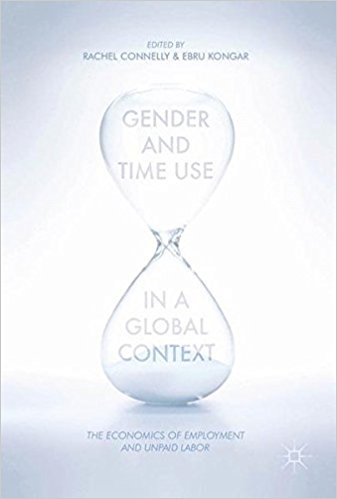
From Palgrave. Edited by Rachel Connelly & Ebru Kongar,
This edited volume uses a feminist approach to explore the economic implications of the complex interrelationship between gender and time use. Household composition, sexuality, migration patterns, income levels, and race/ethnicity are all considered as important factors that interact with gender and time use patterns. The book is split in two sections: The macroeconomic portion explores cutting edge issues such as time poverty and its relationship to income poverty, and the macroeconomic effects of recession and austerity; while the microeconomic section studies topics such as differences by age, activity sequencing, and subjective well-being of time spent. The chapters also examine a range of age groups, from the labor of school-age children to elderly caregivers, and analyze time use in Argentina, Australia, Canada, China, Finland, India, Korea, South Africa, Tanzania, Turkey, and the United States. Each chapter provides a substantial introduction to the academic literature of its focus and is written to be revealing to researchers and accessible to students and policymakers.
See more here
For those interested in performing a review of this book for URPE’s flagship journal, Review of Radical Political Economics, please get in touch with David Barkin
